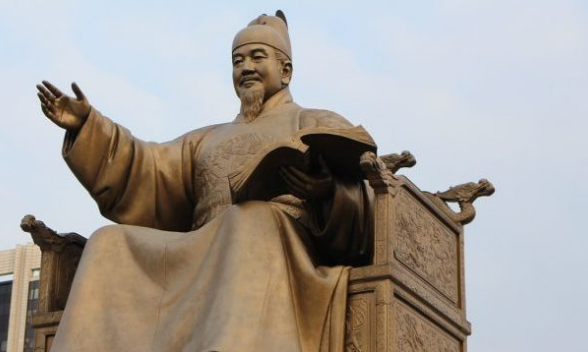Today is the commemoration of the invention of the Korean alphabet, hangul.
Six hundred years ago, King Sejong the Great began his reign over the Joseon Dynasty. As the king was considered the father of his subjects, and being a deeply benevolent Confucian monarch, King Sejong advanced many moral, technological, and cultural achievements.
His most famous achievement was the Korean alphabet, a perfectly phonetic alphabet that could be learned by a fluent speaker of Korean within a very short period of time. One scholar remarked that an intelligent man could learn the alphabet perfectly within a single morning, and the slowest of men would not take more than a week. During the creation of hangul toward the end of his life, King Sejong sacrificed much of his declining health, exacerbating his diabetes and eventually going blind. But he must have felt that his personal sacrifice was worth its creation, deeply believing that by bringing literacy to the common person, everyone could become better moral persons by means of self-study and self-cultivation. Now his subjects could cultivate themselves by studying moral texts and comprehending the laws that embodied moral principles, all without having to pour years into mastering the classical Chinese language.
Today would be a wonderful opportunity to reflect on our own moral cultivation. We should be moved to strive to fulfill the greatest aspirations of this deeply benevolent king by resolving to study harder for the betterment of ourselves and others.

